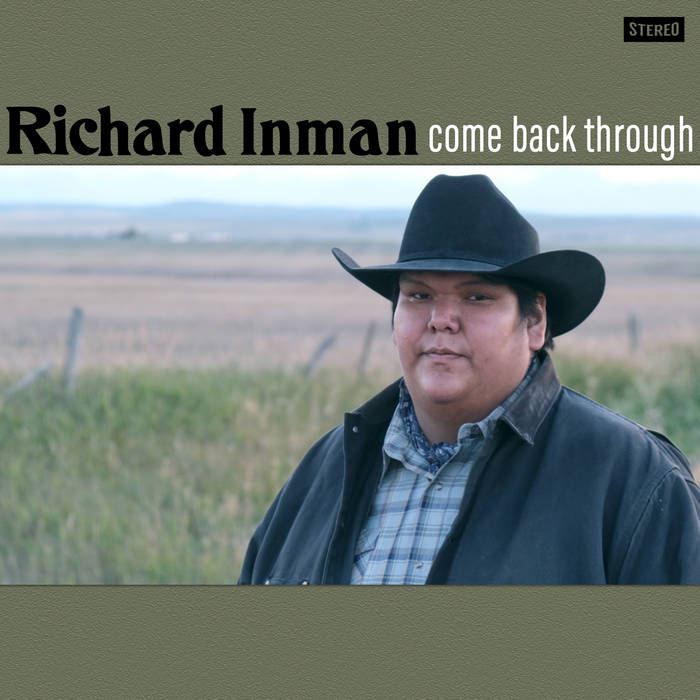
by Noah Cain
Richard Inman’s new album, Come Back Through, is narrated by desperate cowboys, gamblers, and lovers at the edge of what’s bearable. They stare down mistake-filled pasts, debt-ridden presents, and overwhelming futures, struggling with the question of hope. Recorded over a weekend, it is sonically unified and organic. You can feel the magic of that specific time and place as Inman’s baritone rises above classic country chord patterns and instrumentation. As with all of Inman’s work, the storytelling takes center stage.
In the chorus of Come Back Through’s opening song and lead single, “Waiting on the River,” Inman introduces us to the album’s major themes: troubles with gambling and drinking, the beauty of rural central Canada, the precarity of loving and being loved, and the certainty of death: “I’m digging for change, waiting on the river/ Just hoping that my liver and my luck hold out/ Thinking on your dark eyes, dark-haired darling/ Chase away my worries and wash away my doubt.”
Like the other great country songwriters (and he is among the best), Inman can communicate a lifetime of baggage in a few verses and a chorus. He is the master of evocative detail, operating outside of generalization and cliché even when the subject is, on the surface, the stuff of country music tropes. Take this couplet from the terrifying and cinematic “Cut Fence (Let God Sort Them Out)” (co-written with Markus Skovsgaard), which depicts a lonely rancher setting his horses free as a fire barrels toward them: “Had the keys been by the door, instead of blue jeans on the floor / Might have had a chance to haul out a load.” With this one detail, Inman gives us what we need to understand the story the rancher has been telling himself for years, the story that he’s already constructing about this freak fire: that his carelessness is to blame for the loss. In the end, he accepts his fate: “Good luck, godspeed, glad someone made it out / Better than burning here with me.” He’s singing to his horses, but he’s also singing to everyone he feels is better off without him.
Inman is at his strongest when he’s singing about love. Love is not just contained in the lyrics. It hums across the whole album. The title track, which I consider the album’s best, captures the power of unconditional love. Despite unpaid debts, an old friend tells the wanderer, “Brother, always come back through when you go away.” In the wake of this love, the wanderer finds a way forward, reflecting, “If I start right now and take it day by day, I could make it right and chip that debt away.”In these times of intense conflict and division, the love that Inman invites us to witness on Come Back Through, though broken and tenuous, is tender and a great comfort.

